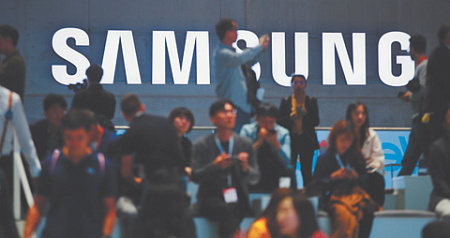
South Korea will provide $23.2 billion in support to its semiconductor industry. The decision to raise the level of financing for one of the country’s key business areas is linked, among other things, to the imposition of duties by US President Donald Trump. However, Samsung is having problems not only because of high tariffs: it is very difficult to find customers even for the company’s products manufactured in the United States.
According to Seoul’s new plans, the support will be $5.3 billion more than previously planned. Of these, $2 billion will be used to finance low-interest concessional loans until 2027.
As part of the planned measures, the government of the Republic of Korea will subsidize the construction of underground power transmission lines for semiconductor clusters, as well as increase the share of infrastructure financing in advanced industrial complexes from 30% to 50%, NBC reports.
South Korea remains a key semiconductor manufacturer in the world, along with Taiwan. At the same time, American Intel is experiencing a serious crisis specifically in the field of chip production – the company is reducing its capacity and plans to build new factories. However, this primarily affects Europe and Malaysia, while Intel is trying to maintain its position in the United States. And Samsung, a South Korean company, continues to increase chip exports, including to China.
As The Financial Times (FT) wrote, the South Korean giant, amid difficulties in cooperation with the United States, is expanding ties with China, where there is increased demand for chips for the development of artificial intelligence (AI). Paradoxically, the duties imposed by Trump may lead to a strengthening of China’s position and strengthen its ties with South Korea.
Recall that one of the important directions of the West in its confrontation with China is considered, among other things, to prevent it from being able to produce advanced chips on its own. So far, Washington is coping with this task, given that it is the United States that is the leader in the production of lithographic equipment, with which they produce the power to create chips. In addition to Americans, lithographic equipment is produced in the Netherlands (ASML) and Japan.
Both countries are cooperating with the Americans to prevent the emergence of any competitor in China. And last November, Samsung suspended shipments of 7nm chips to China under pressure from the White House. The same thing was done before her at Taiwan’s TSMC.
However, now the situation is starting to change. According to FT, although Samsung has set up production facilities in Texas, South Koreans are still finding it difficult to find customers in the United States. By the way, this problem is less related to duties, since duties do not apply to goods produced in the United States. Although the formal reason for strengthening government support measures is still the uncertainty associated with the introduction of tariffs.
But in China, South Korean companies definitely have enough clients. SK Hynix, Samsung’s competitor, would also be ready to buy products there. However, Hynix chips, which are considered even more advanced than Samsung’s, have already been bought out in advance by leading manufacturers of processors and video cards. And the more modest Hynix does not have enough capacity to expand production yet.
However, China itself is making strides forward: Huawei has already established the production of 7nm chips, and in the near future it may master more technologically advanced 5nm chips.
